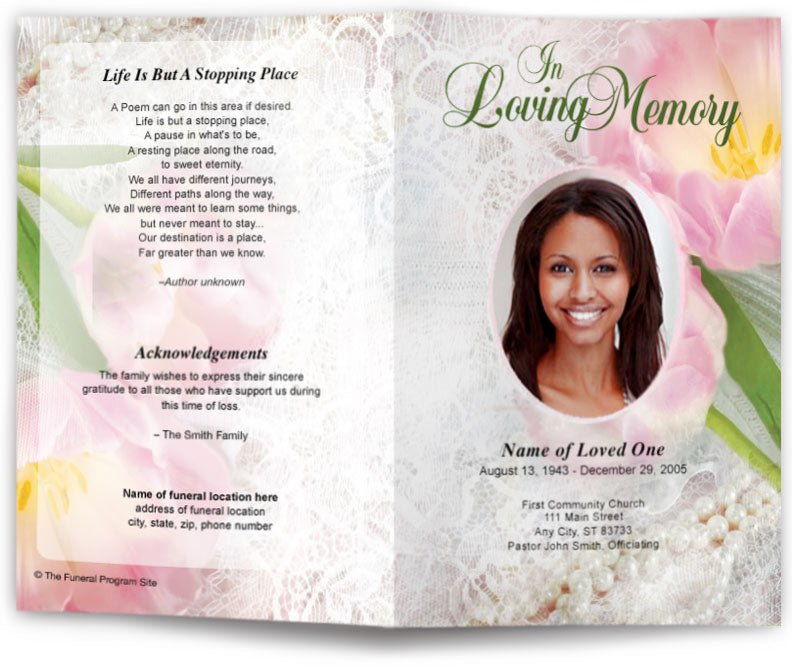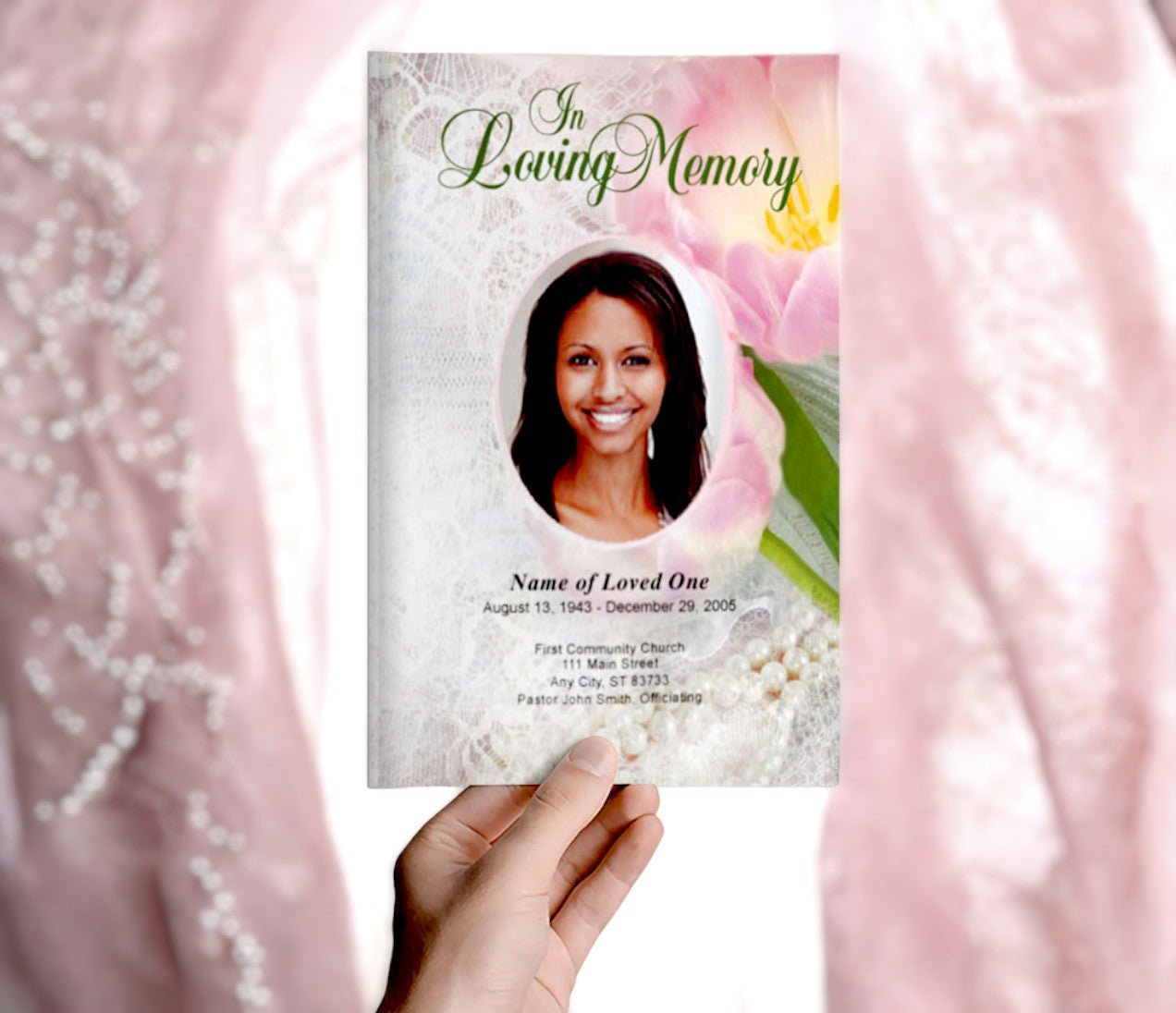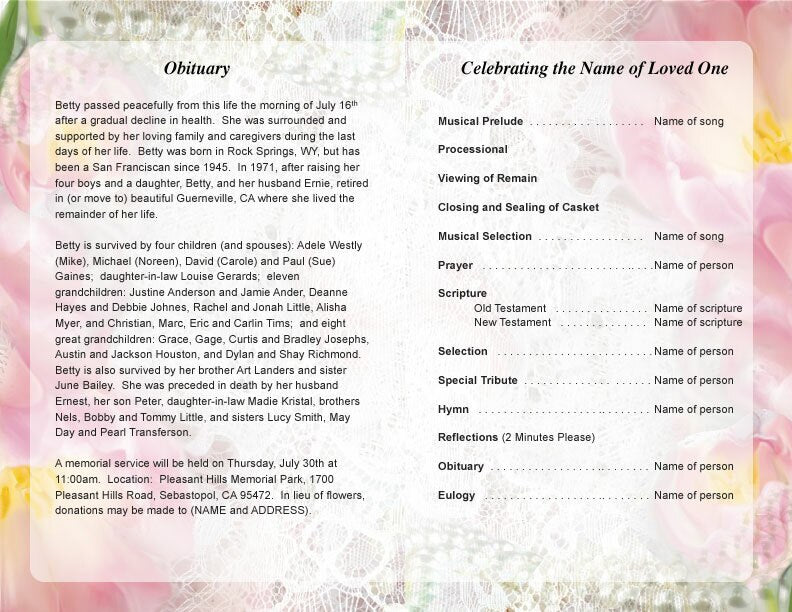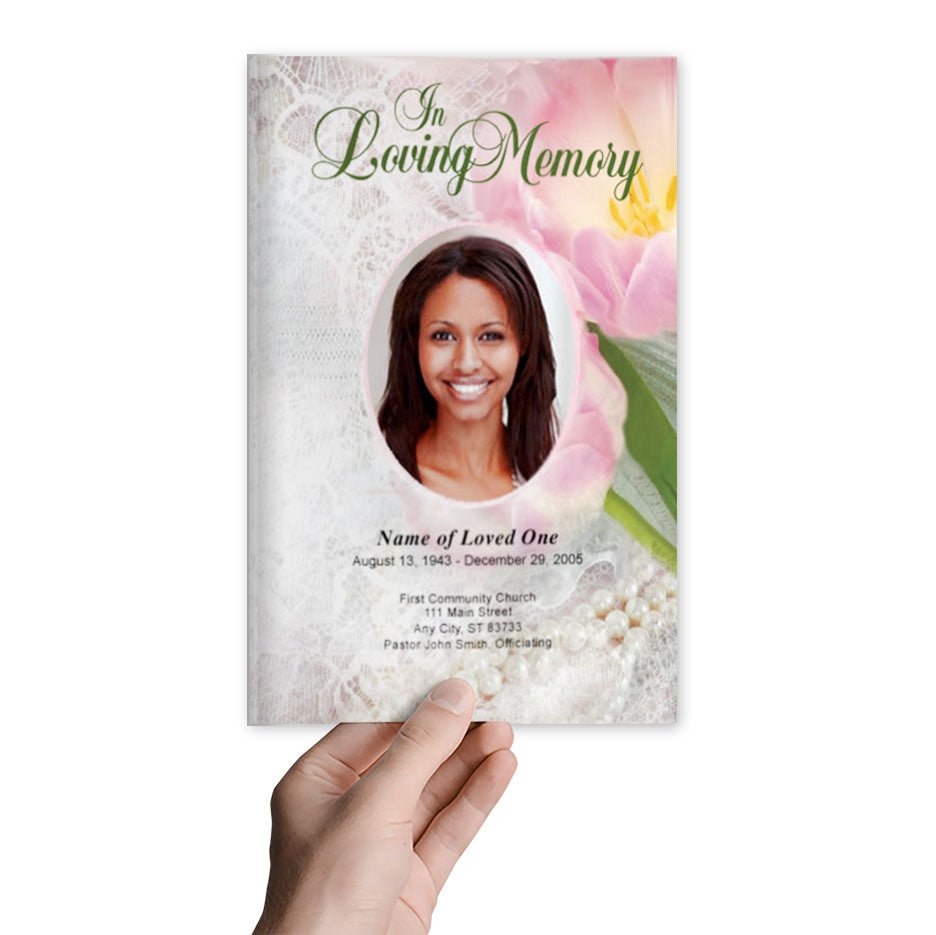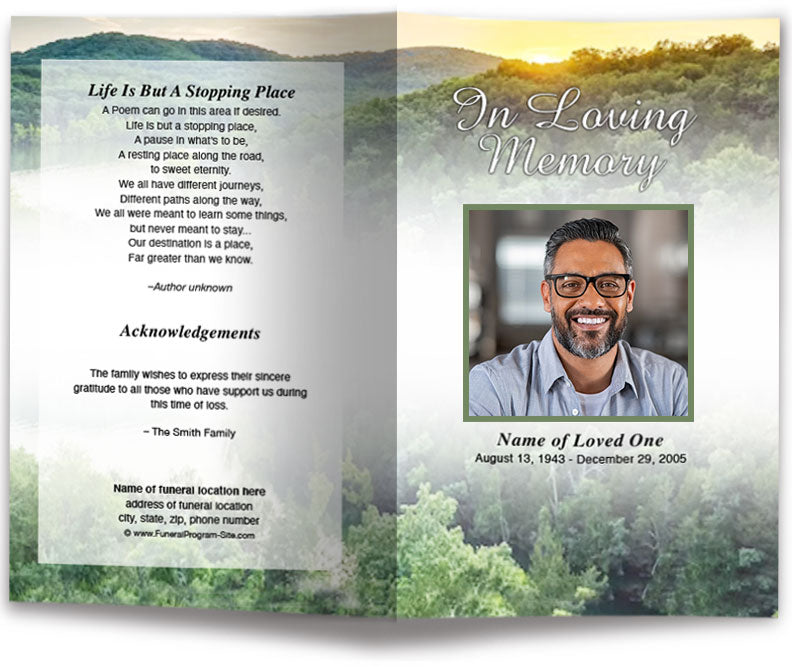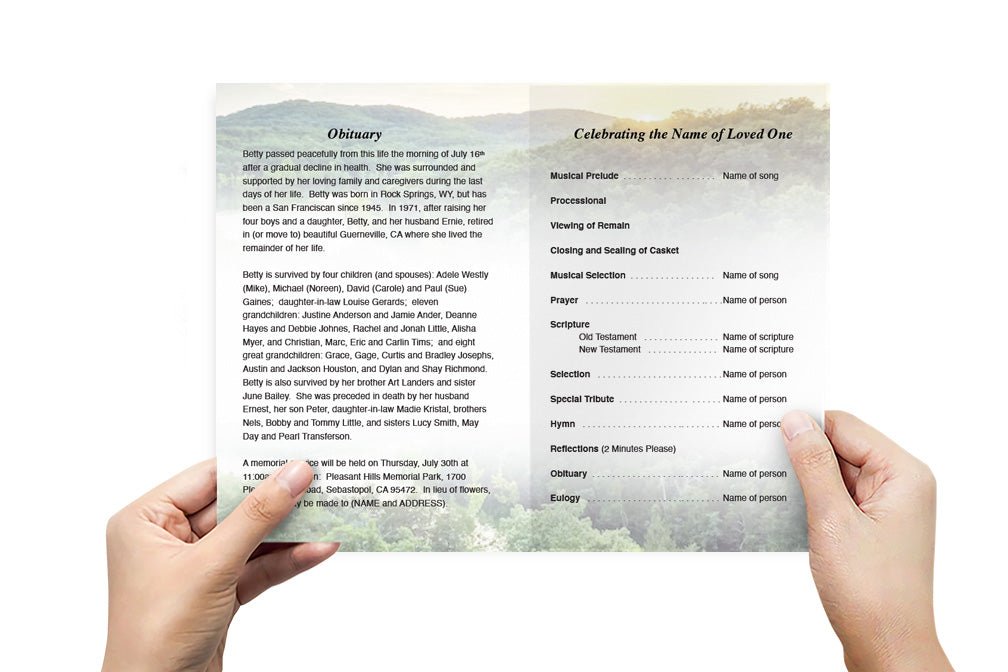Tips for Writing a Meaningful Obituary for a Funeral Program

An obituary is more than just a formal announcement of someone’s passing—it is a heartfelt tribute that captures the essence of their life. Including a well-written obituary in a funeral program helps family and friends reflect on cherished memories while honoring the legacy of the deceased. Writing an obituary can feel overwhelming, but with thoughtful planning, you can craft a meaningful and memorable piece.
1. Start with Essential Information
The first section of an obituary should include key details about the deceased, such as:
- Full name (including maiden name, if applicable)
- Date and place of birth
- Date and place of passing
- Age at the time of death
This provides a structured introduction and allows readers to immediately recognize the individual being honored.
2. Include a Brief Life Overview
A meaningful obituary should highlight major life events and accomplishments in a way that reflects the unique journey of the deceased. Consider including:
- Education and career achievements
- Marriage and family life
- Significant hobbies and passions
- Religious or spiritual beliefs
- Community involvement and contributions
This section helps illustrate how the person lived rather than just listing facts.
3. Highlight Their Personality and Legacy
What made your loved one special? A meaningful obituary should go beyond basic facts and showcase their character, values, and impact on others. Try answering these questions:
- What were their defining qualities? (kindness, humor, generosity, resilience)
- How did they inspire those around them?
- Did they have a favorite saying, habit, or tradition?
Personal anecdotes can add warmth and authenticity, helping readers remember their unique spirit.
4. List Surviving Family Members Thoughtfully
Traditionally, an obituary includes surviving family members to honor the relationships that mattered most. Mention:
- Spouse or life partner
- Children and grandchildren
- Parents and siblings
- Close friends or caregivers
You can also include predeceased family members to acknowledge those who passed before them.
5. Provide Funeral Service Details
If the obituary is being printed in a funeral program, include details about the service so attendees have clear information. Mention:
- Date, time, and location of the funeral or memorial service
- Any special requests (e.g., donations in lieu of flowers)
- Reception or gathering details
If the funeral is private, you can simply state: “A private service will be held for immediate family.”
6. Keep It Concise and Respectful
While it’s important to capture the essence of the individual, avoid making the obituary too long. The ideal length for a funeral program obituary is one to three paragraphs. Keep the tone positive, uplifting, and respectful, focusing on their legacy rather than their passing.
7. Proofread and Get Family Input
Before finalizing the obituary, have a family member or close friend review it for accuracy and completeness. They may remember important details that should be included or help refine the wording. A second set of eyes ensures clarity and avoids mistakes.
8. Personalize with Meaningful Quotes or Scripture
Adding a favorite quote, Bible verse, or poem can bring additional depth and meaning to the obituary. Choose words that reflect the person’s faith, values, or personality, such as:
"Well done, good and faithful servant." – Matthew 25:23
"To live in hearts we leave behind is not to die." – Thomas Campbell
9. Consider the Tone and Writing Style
An obituary can be formal, heartfelt, or even lighthearted, depending on the personality of the deceased. If they had a great sense of humor, you might include a funny memory or witty remark they often used. If they were deeply spiritual, emphasize their faith and devotion.
10. Save a Copy for Future Generations
A well-written obituary serves as a piece of family history. Consider saving digital and printed copies for future generations to cherish. You can also publish it online on a memorial website, social media, or local newspaper for wider accessibility.
Example of a Meaningful Obituary for a Funeral Program
In Loving Memory of Jane Marie Thompson
March 12, 1955 – October 4, 2023
With heavy hearts, we celebrate the life of Jane Marie Thompson, who peacefully passed away on October 4, 2023, at the age of 68. Born in Dallas, Texas, Jane was a beloved wife, mother, grandmother, and friend.
Jane dedicated her life to helping others, spending over 30 years as a nurse and community volunteer. She was known for her warm heart, quick wit, and unwavering faith. Her home was always open to family and friends, filled with the aroma of fresh-baked cookies and laughter.
She is survived by her loving husband of 45 years, Robert Thompson, her children Emily (John) Carter and Michael (Sarah) Thompson, and her five adoring grandchildren. She is reunited in Heaven with her parents, James and Margaret Reynolds.
A celebration of life service will be held on October 10, 2023, at 2:00 PM at Grace Community Church, Dallas, TX. In lieu of flowers, the family requests donations to the American Cancer Society, honoring Jane’s commitment to supporting cancer research.
"Her love and kindness will remain in our hearts forever."
Final Thoughts
Writing an obituary for a funeral program is an opportunity to honor a loved one’s life, personality, and impact. By including key details, personal stories, and meaningful words, you create a beautiful tribute that preserves their legacy. Keep it authentic, heartfelt, and memorable, ensuring their spirit lives on in the hearts of those they touched.










